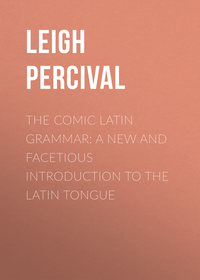The Comic Latin Grammar: A new and facetious introduction to the Latin tongue

Полная версия
Добавить В библиотекуАвторизуйтесь, чтобы добавить
Добавить отзывДобавить цитату
The Comic Latin Grammar: A new and facetious introduction to the Latin tongue
Авторизация